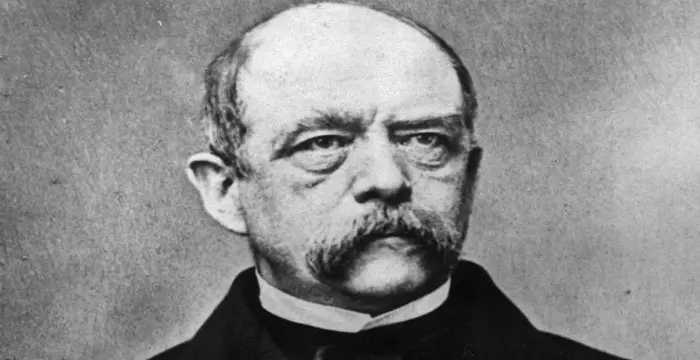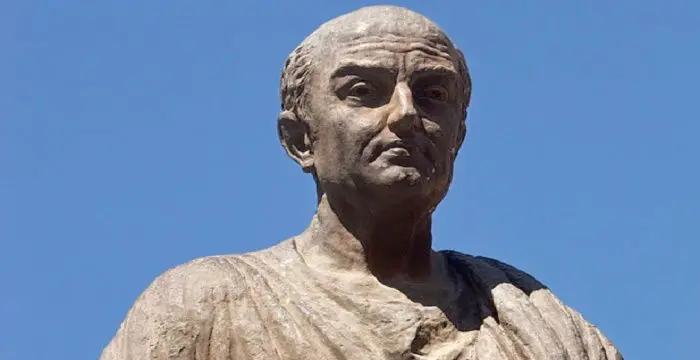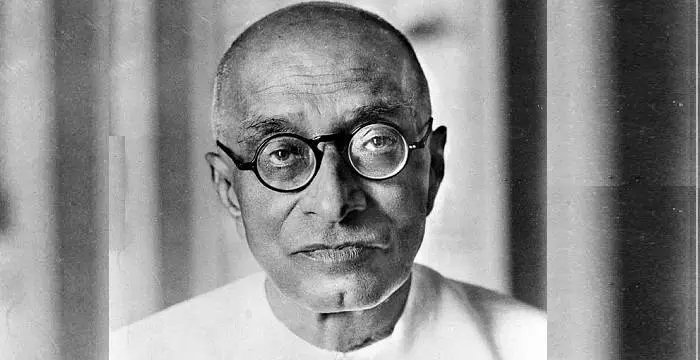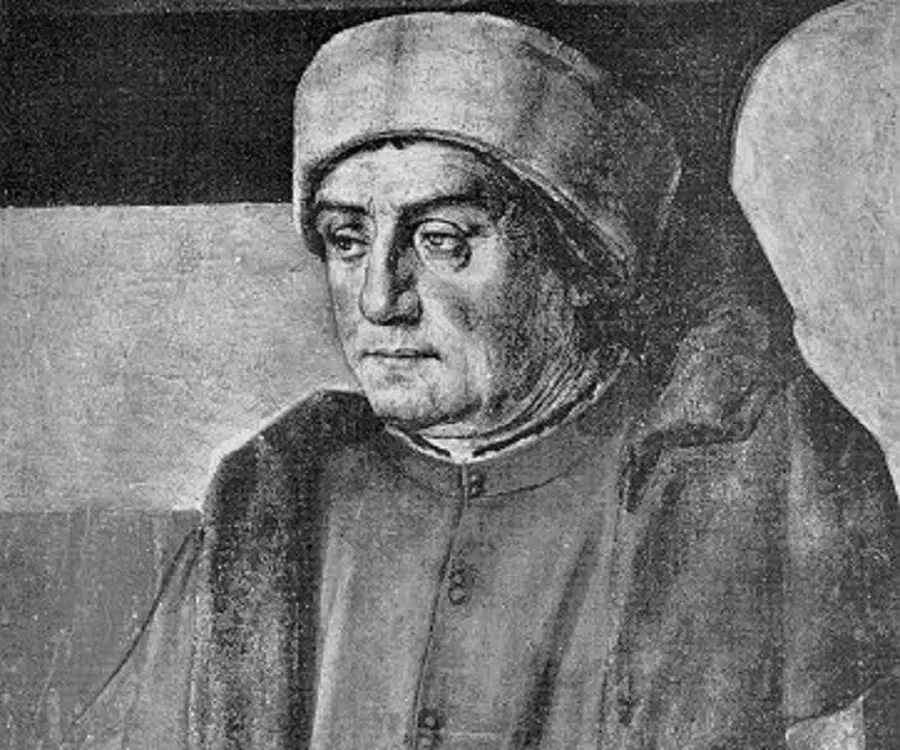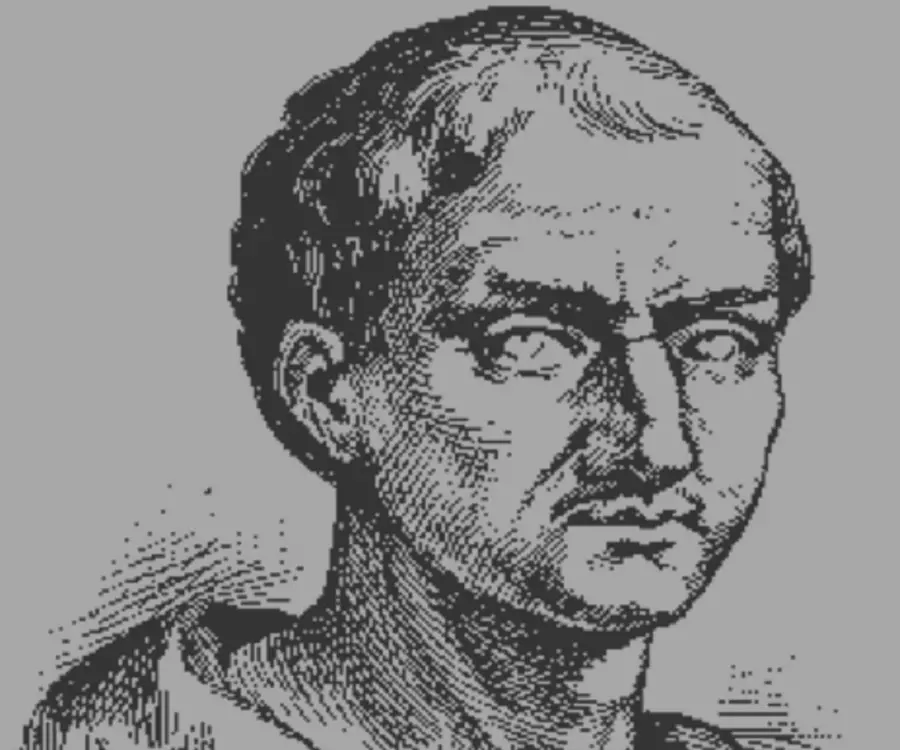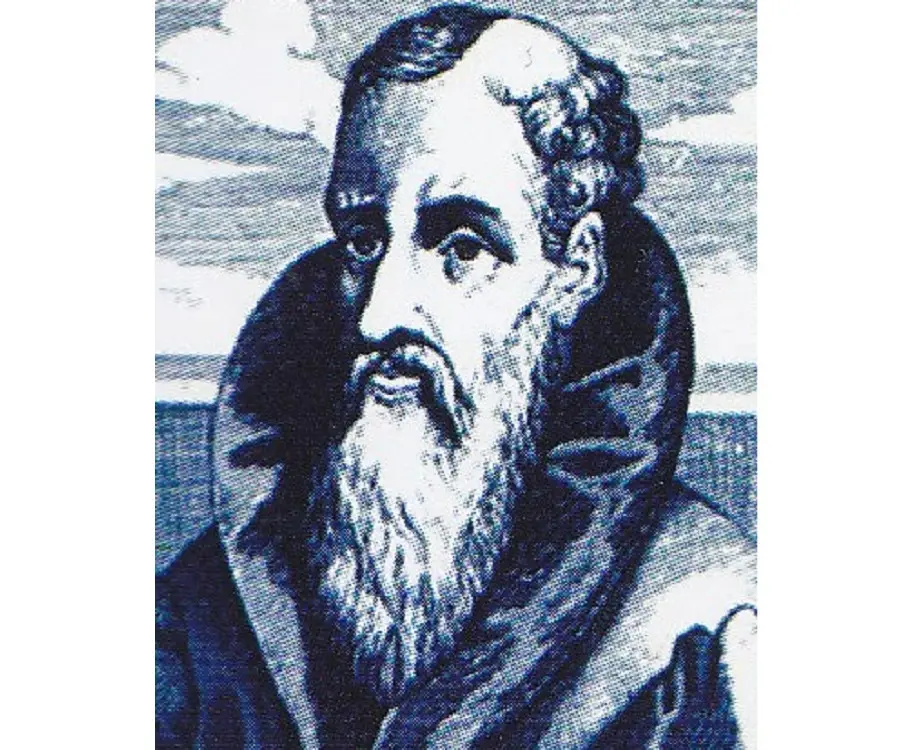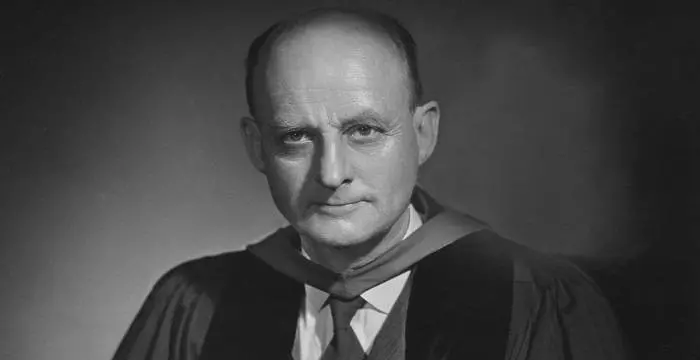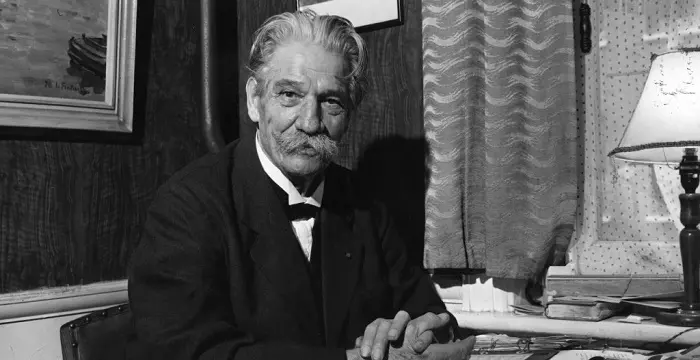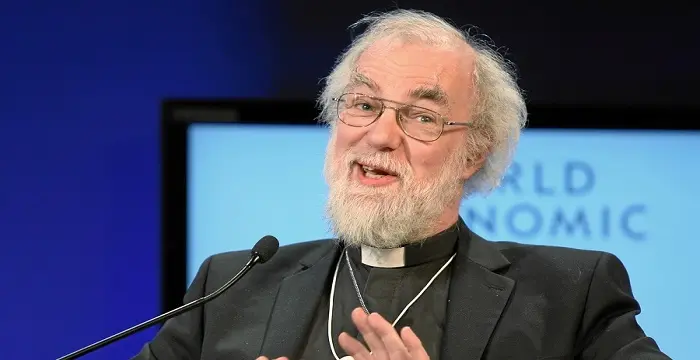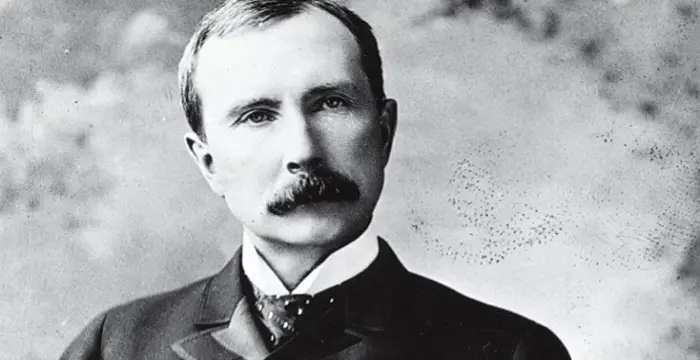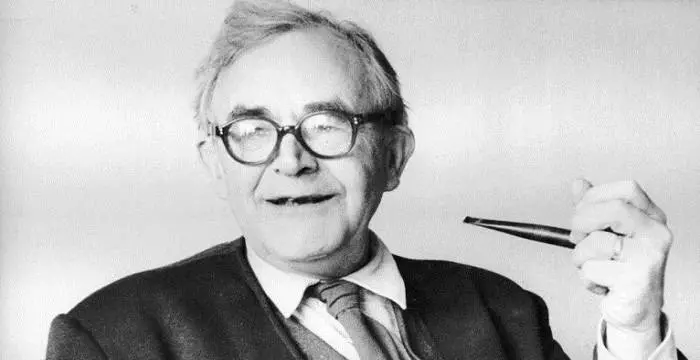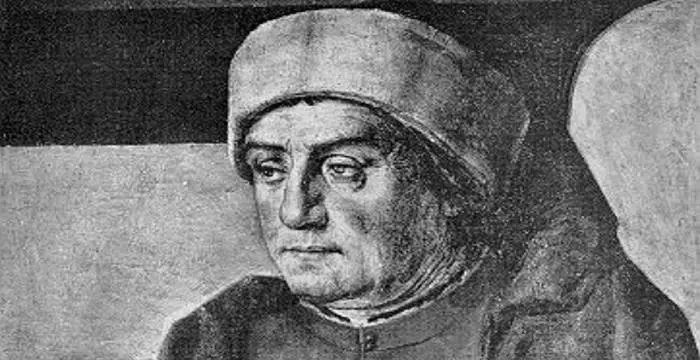
Anicius Manlius Severinus Boethius - Statesman, Career and Personal Life
Anicius Manlius Severinus Boethius's Personal Details
Boethius was an early 6th century Roman senator and philosopher best known for his treatise ‘Consolation of Philosophy’
| Information | Detail |
|---|---|
| Birthday | 480 |
| Died on | January 1, 524 |
| Nationality | Italian |
| Famous | Intellectuals & Academics, Philosophers, Theologians, Statesman |
| Spouses | Elpis, Rusticiana |
| Known as | Anicius Manlius Severinus Boëthius |
| Cause of death |
|
| Birth Place | Rome |
| Religion | Christian |
| Gender | Male |
| Father | Flavius Manlius Boetius |
| Born in | Rome |
| Famous as | Philosopher, Theologian, Statesman |
| Died at Age | 44 |
// Famous Statesman
Otto von Bismarck
Otto von Bismarck served as the Chancellor of Germany and the Prime Minister of Prussia. He unified the German states into a powerful German empire. This biography profiles his childhood, political career, life, achievements and timeline.
Lucius Annaeus Seneca
Lucius Annaeus Seneca, commonly known as Seneca, was a Roman philosopher and statesman. This biography profiles his childhood, life, career, works, achievements & timeline.
C. Rajagopalachari
Chakravarthi Rajagopalachari was an Indian lawyer, independence activist, politician and writer. Check out this biography to get detailed information on his life.
Anicius Manlius Severinus Boethius's photo
Who is Anicius Manlius Severinus Boethius?
Boethius was an early 6th century Roman senator, consul, and philosopher who entered public service under Ostrogothic King Theodoric the Great. He was born into a prominent family which included emperors Petronius Maximus and Olybrius and many consuls. His father too was a consul who died when Boethius was a young boy. He was then raised by Quintus Aurelius Memmius Symmachus who provided him with a good education and kindled in him a love for literature and philosophy. He entered public service at a young age and held many important offices, including the consulship during the reign of King Theodoric the Great. Eventually he rose to become the magister officiorum, the head of all the government and court services. He was inclined towards scholarly pursuits and it was his ambition to translate the complete works of Aristotle with commentary from Greek into Latin. During his career as a consul he was also able to translate several of Aristotle’s works. However, the respected philosopher fell out of favor with the king who suspected him of participating in a conspiracy to overthrow him. He was imprisoned, and while in jail he composed his ‘Consolation of Philosophy’, a philosophical treatise on fortune, death and other issues. He was executed shortly after.
// Famous Intellectuals & Academics
Bertil Gotthard Ohlin
Bertil Gotthard Ohlin was a famous Swedish economist. This biography profiles his childhood, family life & achievements.
Emily Greene Balch
Emily Greene Balch was an American economist, sociologist and pacifist who won the 1946 Nobel Peace Prize. This biography of Emily Greene Balch provides detailed information about her childhood, life, achievements, works & timeline.
Martin Buber
One of the greatest philosophers to have ever walked on earth, Martin Buber contributions to philosophy is a long-standing one. Explore all about his profile, childhood, life and timeline here.
Childhood & Early Life
He was born as Anicius Manlius Severinus Boëthius around 480 AD in Rome, Kingdom of Odoacer into the ancient Roman family of the Anicii which included emperors Petronius Maximus and Olybrius and many consuls. His father Manlius Boethius was appointed consul in 487 AD.
His father died when Boethius was young. He was then adopted and raised by Quintus Aurelius Memmius Symmachus, an aristocrat known to his father. He was given a good education by his foster father who also instilled in him a deep love for literature and philosophy.
Little is known of his formal education. Some scholars believe that Boethius was educated in the East as he was fluent in Greek, a rare skill at the time in the Western Empire. The French scholar Pierre Courcelle was of the view that Boethius studied at Alexandria with the Neo-Platonist philosopher Ammonius Hermiae. However, the claims have not been proven.
Career
Boethius entered the service of Theodoric the Great at a young age. He had become a senator by the time he was 25. One of the earliest tasks he undertook for the king was to investigate allegations that the paymaster of Theodoric's bodyguards had debased the coins of their pay.
According to documented proofs, Boethius produced a waterclock which king Theodoric gave to king Gundobad of the Burgunds. He also recruited a lyre-player to perform for king Clovis of the Franks.
He found considerable success in his public service and held several important positions during Theodoric's reign. He was an intellectual with interests in scholarly pursuits and it was his dream to translate into Latin the complete works of Aristotle with commentary and all the works of Plato.
He started working on the translations during the 500s, and began translating Porphyry's 'Eisagogē', a 3rd-century Greek introduction to Aristotle's logic, and elaborated it in a double commentary.
In 510 AD, he became the consul, and during his consulship he translated the 'Katēgoriai', and also translated and wrote two commentaries on the second of Aristotle's six treatises, the 'Peri hermeneias'. He also wrote two short works on the syllogism.
He continued to enjoy much power and prestige in his public career and was appointed to the office of magister officiorum, one of the most senior administrative officials in the late Roman Empire, in 522 AD. By this time two of his sons had also been appointed co-consuls.
During this time, Boethius was working on revitalizing the relationship between the Roman See and the Constantinopalian See. Both were parts of the same Church but disagreements had crept up between them. His attempts to reconcile the disagreeing parties led to a series of events that culminated in his losing the royal favor.
He fell from power in 523 AD and the king Theodoric the Great had him arrested and sentenced to death. During his imprisonment while awaiting execution, he wrote the treatise 'Consolation of Philosophy' which went on to become his best known work and also one of the seminal works of the Middle Ages.
Major Works
He translated several of Aristotle's works, and his completed translations of Aristotle's works on logic were the only significant portions of Aristotle available in Latin Christendom from the sixth century until the 12th century. Some of his translations, however, were mixed with his own commentary.
Boethius's best known work is the 'Consolation of Philosophy' which he wrote during his imprisonment as he awaited his execution. The work is presented in the form of an imaginary dialogue between himself and philosophy, with philosophy personified as a woman.
Personal Life & Legacy
He married his foster father Quintus Aurelius Memmius Symmachus' daughter, Rusticiana. Their children included two boys, Symmachus and Boethius, who followed in their father's tradition and became consuls on growing up.
He was arrested by the king Theodoric the Great and sentenced to death on charges of conspiracy to overthrow the king. Boethius was executed in 524 AD after a year of imprisonment.
Boethius was a devoted Christian and is recognized as a martyr for the Catholic faith by the Roman Martyrology. He was declared a saint by the Sacred Congregation of Rites in 1883.
// Famous Philosophers
Martin Buber
One of the greatest philosophers to have ever walked on earth, Martin Buber contributions to philosophy is a long-standing one. Explore all about his profile, childhood, life and timeline here.
Lao Tzu (Laozi)
Lao Tzu was a legendary Chinese philosopher who wrote the important “Daodejing”. This biography profiles his childhood, life, career, achievements and timeline.
Alan Watts
Alan Watts was a famous British philosopher known for his Zen teachings and interpretations of Eastern philosophy. Read more about this great philosopher in the following article.
Anicius Manlius Severinus Boethius biography timelines
- // 480 To 487He was born as Anicius Manlius Severinus Boëthius around 480 AD in Rome, Kingdom of Odoacer into the ancient Roman family of the Anicii which included emperors Petronius Maximus and Olybrius and many consuls. His father Manlius Boethius was appointed consul in 487 AD.
- // 510In 510 AD, he became the consul, and during his consulship he translated the 'Katēgoriai', and also translated and wrote two commentaries on the second of Aristotle's six treatises, the 'Peri hermeneias'. He also wrote two short works on the syllogism.
- // 522He continued to enjoy much power and prestige in his public career and was appointed to the office of magister officiorum, one of the most senior administrative officials in the late Roman Empire, in 522 AD. By this time two of his sons had also been appointed co-consuls.
- // 523He fell from power in 523 AD and the king Theodoric the Great had him arrested and sentenced to death. During his imprisonment while awaiting execution, he wrote the treatise 'Consolation of Philosophy' which went on to become his best known work and also one of the seminal works of the Middle Ages.
- // 524He was arrested by the king Theodoric the Great and sentenced to death on charges of conspiracy to overthrow the king. Boethius was executed in 524 AD after a year of imprisonment.
// Famous Theologians
Meister Eckhart
Explore this biography to know the profile, childhood, life and timeline of Meister Eckhart, who brought in a great change in Germany with his groundbreaking thesis and ideas.
Reinhold Niebuhr
Reinhold Niebuhr was a German-American theologian, intellectual and political commentator who wrote the famous book, ‘Moral Man and Immoral Society’. This biography provides information about his profile, childhood, life and timeline.
Albert Schweitzer
Albert Schweitzer was a German born French theologian, organist, philosopher, physician, and medical missionary. Check out this biography to know about his childhood, family life, and achievements.
Rowan Douglas Williams
Rowan Douglas Williams is an Anglican bishop, poet and theologian. This article traces his childhood, life achievements, works & timeline.
John Calvin
John Clavin was a French theologian & pastor who played an important role in the Protestant Reform movement. Check out this biography to know about his childhood, family life, achievements and other facts related to his life.
Karl Barth
Karl Barth was an important Swiss theologian. This biography outlines his childhood, early life, career, major works, personal life, legacy and trivia.
Anicius Manlius Severinus Boethius's FAQ
When was Anicius Manlius Severinus Boethius died?
Anicius Manlius Severinus Boethius was died at 0524-01-01
Where was Anicius Manlius Severinus Boethius died?
Anicius Manlius Severinus Boethius was died in Pavia
Which age was Anicius Manlius Severinus Boethius died?
Anicius Manlius Severinus Boethius was died at age 44
Where is Anicius Manlius Severinus Boethius's birth place?
Anicius Manlius Severinus Boethius was born in Rome
What is Anicius Manlius Severinus Boethius nationalities?
Anicius Manlius Severinus Boethius's nationalities is Italian
Who is Anicius Manlius Severinus Boethius spouses?
Anicius Manlius Severinus Boethius's spouses is Elpis, Rusticiana
What is Anicius Manlius Severinus Boethius's cause of dead?
Anicius Manlius Severinus Boethius dead because of Execution
What is Anicius Manlius Severinus Boethius's religion?
Anicius Manlius Severinus Boethius's religion is Christian
Who is Anicius Manlius Severinus Boethius's father?
Anicius Manlius Severinus Boethius's father is Flavius Manlius Boetius
How famous is Anicius Manlius Severinus Boethius?
Anicius Manlius Severinus Boethius is famouse as Philosopher, Theologian, Statesman
